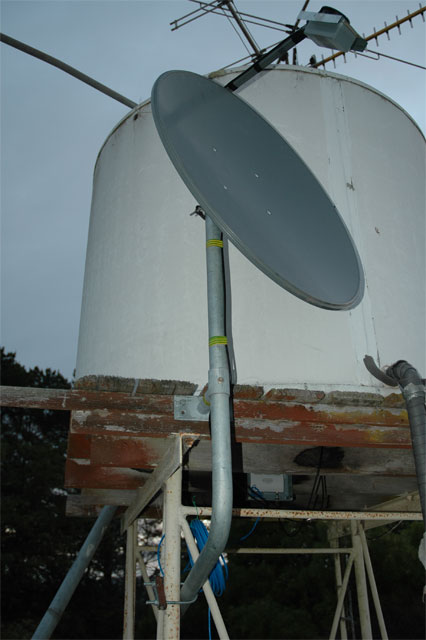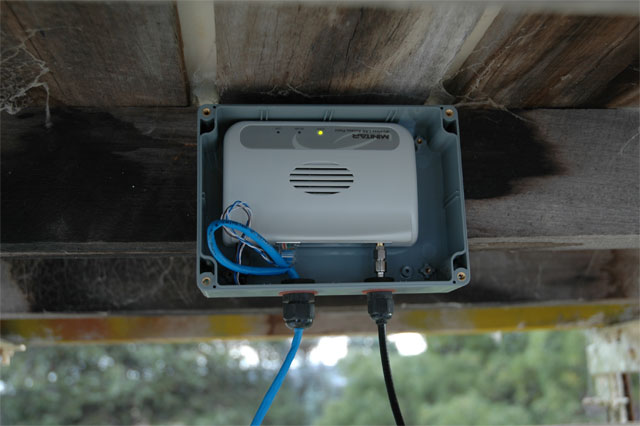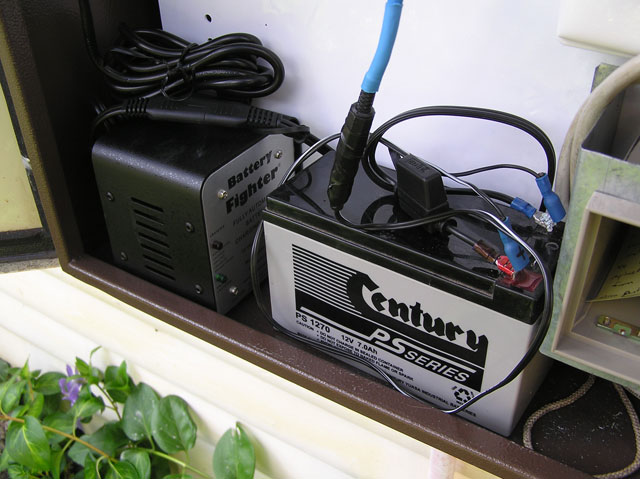
These dishes, left on
peoples houses from a now-defunct satellite TV provider,
are ideal for wireless LAN links. The gadget on the arm replaces the
original LNB and consists of a simple biquad (etched onto a PCB)
enclosed in a weatherproof box. This in turn is
mounted on a galvanised steel reflector to further enhance the signal.
This configuration gives better than 20 dBi signal gain, but it still
pays to minimise the coax cable run - that's why the AP is mounted
nearby in the little waterproof box you can see (without its lid).

Close-up of the Minitar
MNWAPB mounted in its little weatherproof case.
The 'extra' exposed wires are the retrofitted Power Over Ethernet
(POE) connection. To save running mains power up the tower, the power
supply
for the AP is located remotely and the 12V DC run through a spare pair
in the Cat5e cable. The whole setup is mounted on a water tower
adjacent to the main homestead - very convenient and it saved having to
construct a tower!

This is the other end of
the Cat5e from
the AP on the tower, mounted in a weatherproof gear cabinet in the
outside wall of the homestead. The cabinet is connected to mains power
and has a single LAN outlet. As you can see, the POE is
connected
directly to a 12V sealed lead acid battery, which in turn is kept
topped up by an intelligent trickle charger. As the AP is internally
regulated and only requires 12V DC input, this was cheaper, more
logical and more efficient than just running the APs plugpack on a
little UPS. The charger has enough overhead to simultaneously run the
AP and recharge the 7.0Ah battery after a blackout before automatically
switching back to float charge. The longest outage we have
seen
since this was installed was about 8 hours, and the AP was still up at
the end of it. The AP doesn't draw much current (its plugpack was only
500mA), and I've already found a good network switch (a Linksys SD-205)
which also runs on 12V with minimal current
draw. This switch will be installed on the battery if we need
any more devices in
the cabinet connected to the network.